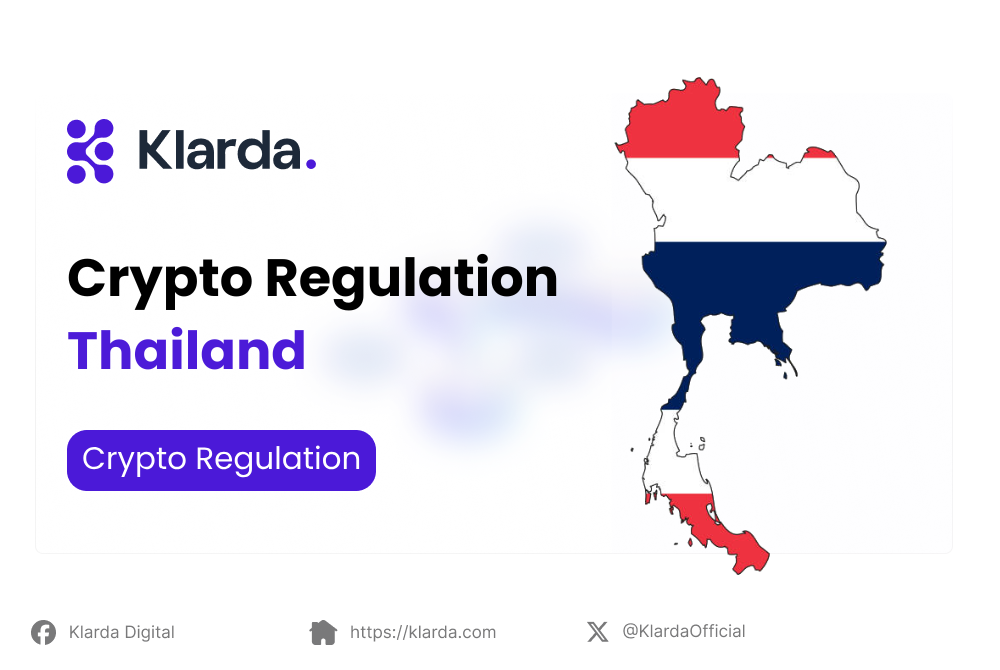Crypto Regulation in Thailand
Explore Thailand Crypto Regulation: Stay Informed on Key Developments in 2024. Learn About Thai Cryptocurrency Laws and Compliance.
Thailand, a country renowned for its vibrant culture and economic dynamism, has emerged as a significant player in the ever-evolving landscape of cryptocurrencies, guided by the Thailand crypto regulation. In recent years, the Thai crypto market has experienced notable growth, reflecting the global trend of increasing interest in digital assets. As we delve into this fascinating domain, it becomes crucial to understand the intricacies of Thailand's cryptocurrency market, and perhaps even more importantly, the regulatory framework that shapes it.

KEY TAKEAWAYS
- The Thai cryptocurrency market is growing, has strict regulations from the SEC
- Thailand Crypto Regulation requires businesses to comply, and faces challenges from new regulations and international competition.
- In the future, regulations may be further tightened, but for now Thailand is crypto-friendly and Binance operates legally here.
BRIEF OVERVIEW OF THAILAND'S CRYPTOCURRENCY MARKET
At the heart of this exploration lies a panoramic view of the Thai cryptocurrency market. Currently, the market stands as a dynamic ecosystem, witnessing a surge in trading activities, blockchain innovations, and an expanding user base. With a keen eye on statistics such as market size, trading volumes, and the prevalence of major cryptocurrencies, one can begin to decipher the unique characteristics that distinguish Thailand's crypto scene.
As cryptocurrencies gain traction among both individual and institutional investors, Thailand showcases its own distinctive trends. Whether it's the local adoption rate, advancements in blockchain technology, or the emergence of new market players, the Thai crypto landscape stands as a testament to the nation's openness to financial innovation.
CURRENT STATE OF THAILAND CRYPTO REGULATION
- Regulatory Body: The Securities and Exchange Commission of Thailand (SEC) oversees cryptocurrencies and digital assets, with regulations for ICOs, digital asset dealers, and advisors.
- ICO and Token Classification: ICOs require SEC approval and must be offered through approved Digital Portal Service Providers. Tokens are classified as investment or utility tokens, with specific regulations for each.
- Taxation: Income from cryptocurrencies is taxable. Certain transfers of cryptocurrency are exempt from VAT, and new tax regulations will require residents to declare and pay personal income tax on foreign revenues, including income from cryptocurrency trading.
- AML Measures: Digital asset business operators and digital token portal service providers are classified as financial institutions under the Anti-Money Laundering Act and are subject to AML measures.
COMPLIANCE REQUIREMENTS FOR CRYPTO BUSINESSES
Registration and Licensing Procedures
Crypto businesses operating in Thailand are subject to registration and licensing procedures outlined by the regulatory authorities. Compliance involves obtaining the necessary approvals and adhering to specific guidelines, reinforcing the government's commitment to responsible and accountable market participation.
Anti-Money Laundering (AML) and Know Your Customer (KYC) Regulations
To combat illicit activities, stringent AML and KYC regulations are in place. Crypto businesses are required to implement robust identity verification processes, promoting transparency and accountability while preventing the misuse of digital assets for illegal purposes.
Taxation Policies Related to Crypto Transactions
Thailand has established clear taxation policies concerning crypto transactions. These policies address areas such as capital gains tax and other tax obligations related to crypto activities. This ensures that the crypto industry contributes its fair share to the national economy.
FUTURE OF THAILAND CRYPTO REGULATION IN 2024
The future of cryptocurrency regulation in Thailand in 2024 and beyond seems to be characterized by increased scrutiny, enhanced regulatory frameworks, and a focus on investor protection, while also recognizing the potential of digital assets in the financial ecosystem. Here are some key points to note:
Emergence as a Crypto Hub: Despite regulatory challenges, Thailand, particularly Bangkok, is emerging as a significant hub for cryptocurrency. The capital city has attracted a substantial number of crypto companies and has a high rate of crypto ownership. However, the future of Thailand's status as a crypto hub could be affected by the tightening of regulations.
Regulatory Focus: The Thai SEC and other financial regulators are preparing tighter rules for crypto, especially in areas like trading and advertising of digital assets. This tightening comes in the wake of global incidents like the FTX collapse and is part of a broader global trend towards more stringent regulation of the cryptocurrency sector.
Taxation Changes: Significant changes to tax regulations are expected, targeting individuals residing in the country for more than 180 days. From January 1, 2024, these individuals will be required to declare and pay personal income tax on foreign revenues, including income generated from cryptocurrency trading. This shift marks a move from the previous system where only foreign income remitted to Thailand in the same year of earnings was taxable
FAQS
Is Thailand a crypto-friendly country?
Yes, Thailand is crypto-friendly with established regulations, licensing requirements, and government support for blockchain innovation.
Is crypto taxed in Thailand?
Yes, cryptocurrency transactions are subject to taxation in Thailand, including capital gains tax and other applicable taxes.
Is Binance legal in Thailand?
Yes, Binance is legal in Thailand and has officially launched its services after securing the necessary licenses
In conclusion, Thailand's cryptocurrency market is thriving within the framework of Thailand crypto regulation. The SEC oversees various aspects, including ICOs, token classifications, taxation, and AML measures. Despite challenges related to regulatory balance and international competition, Thailand's cryptocurrency landscape is evolving. In the upcoming year of 2024, we anticipate stricter regulatory measures and significant tax changes under Thailand's crypto regulation.
Updated 9 months ago